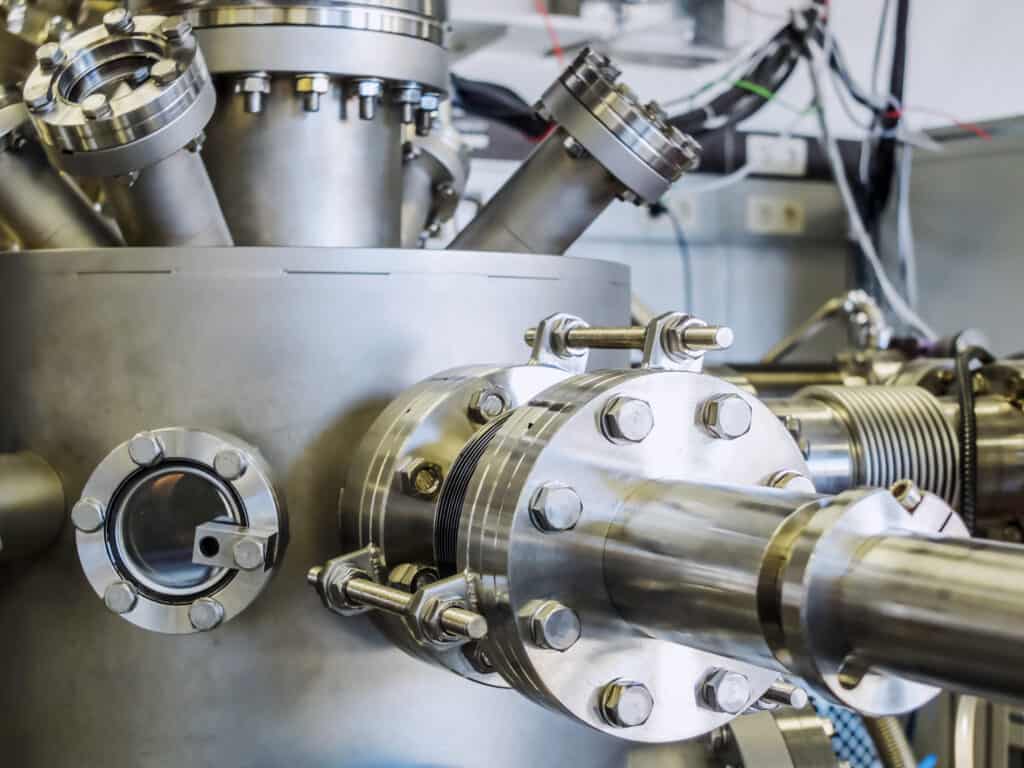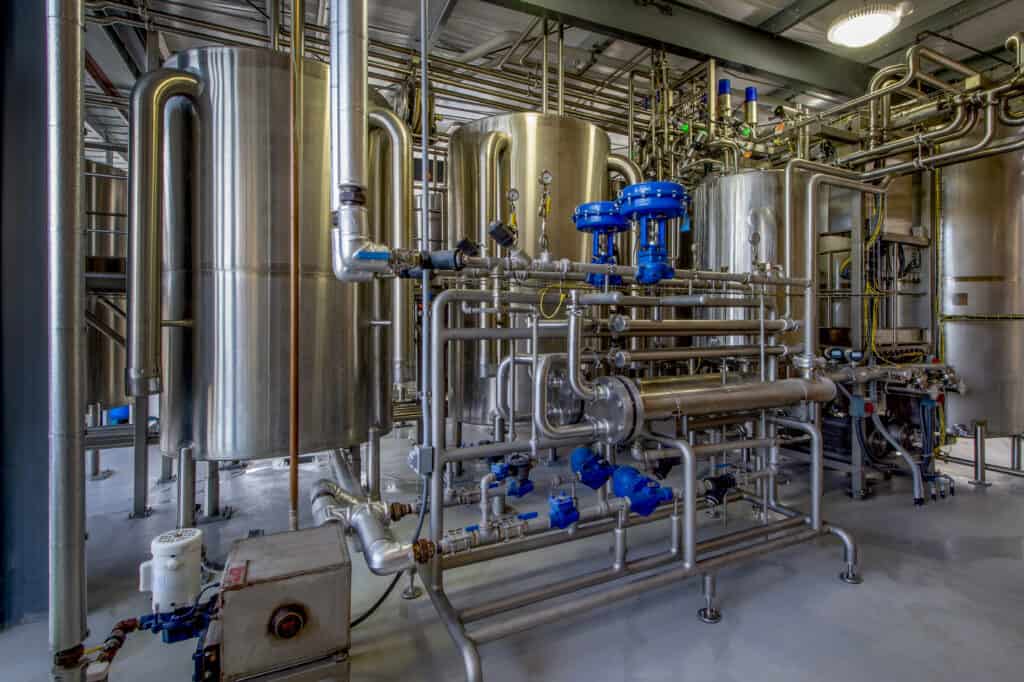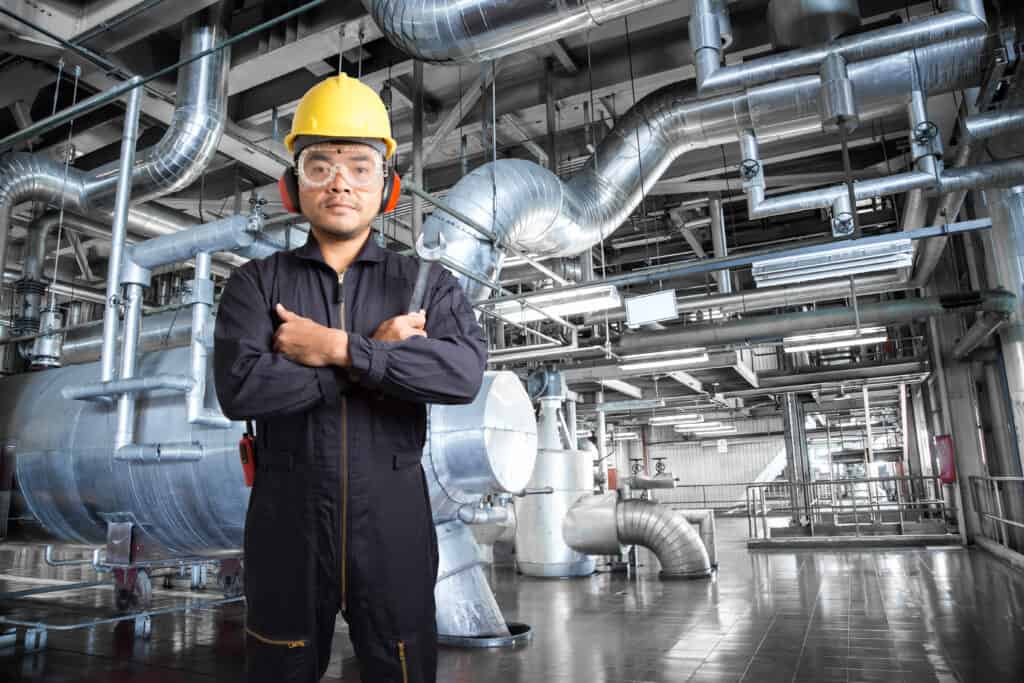The Pipefitter JOB
The pipefitter career is a thriving profession within the industrial sector. It allows workers to utilize their expertise in dealing with intricate piping systems, making it a vital role in the industry. What do you need to know about this essential plumbing expert, responsible for the seamless operation of our plumbing installations?
Our PIPEFITTER job offers
Tuyauteur senior – Offre H1
Gaspé
Temps plein
Permanent
Horaire de jour flexible
Contrat à durée indéterminée
Plusieurs postes à combler
De 24,00$ à 34,00$ de l’heure
Tu as une formation de tuyauter ou tu as de l’expérience dans le domaine ? Tu aimes les défis et aimerais avoir l’occasion de te développer dans le domaine ? Tu voudrais faire partie d’une équipe soudée et dynamique ? Nous avons plusieurs opportunités d’emploi à te proposer !
Pipefitter Job: Necessary Training
To pursue a pipefitter career, one must acquire a vocational diploma in plumbing and heating or as a pipe mechanic. These programs last for 1680 hours, approximately 15 months. This program is available in various regions of Quebec, such as Montreal, Monteregie, and Centre-du-Quebec.
Upon completing this professional-level training, a pipefitter can choose to specialize as a plumber or as a heating equipment installer.

Pipefitter Skills and Responsibilities
Individuals who excel in mathematics and have a keen interest in chemistry are ideal candidates for pipefitter jobs, as these roles require concentration and precision.
In their daily tasks, pipefitters perform a variety of duties related to the installation, repair, or modification of plumbing or heating systems. Specifically, they determine the work needed on pipe networks by analyzing construction plans, working on gas, steam, or chemical pipelines.
Pipefitters are responsible for preparing pipe components using manual or mechanical tools and assembling them. Ultimately, they must ensure the integrity of the pipe network. Additionally, their services may be required for cleaning pipes and drainage systems.
What skills are necessary for pipefitter jobs in a company? Firstly, having a strong foundation in mathematics, physics, and chemistry is crucial for applying concepts from these fields to their work. Individuals with a scientific mindset and a passion for calculations will be well suited for these roles.
A pipefitter must be meticulous and capable of working both independently and in a team. As the role can be solitary, the ability to work autonomously while executing tasks is essential.
Since pipefitter jobs demand great precision, attention to detail, and excellent dexterity are required skills.

Pipefitter Job: Salary Expectations
The future prospects for pipefitters are promising, with an approximate placement rate of 80% for new graduates. The salary for pipefitter jobs typically averages around $30 per hour, although this can vary depending on additional specialized training.

FAQ ON THE PIPEFITTER PROFESSION
What is a pipefitter?
A pipefitter is a professional specialized in the installation, repair, and modification of piping systems. These systems can include pipelines for gas, steam, or chemicals. The pipefitter plays a crucial role in ensuring the proper functioning of plumbing and heating installations, ensuring the tightness and safety of pipe networks.
What training is necessary to become a pipefitter?
To work as a pipefitter, it is necessary to obtain a professional diploma in plumbing and heating or as a pipefitting mechanic. These programs generally last 1680 hours, or about 15 months, and are offered in various regions of Quebec.
What skills are required for a pipefitter job?
Required skills for a pipefitter include strong knowledge of mathematics, physics, and chemistry, great attention to detail, good dexterity, and the ability to work both independently and as part of a team. Attention to detail and autonomy are also essential qualities.
What is the average salary of a pipefitter?
The average salary for a pipefitter is about $30 per hour. This rate can vary depending on experience, specialization, and the region of work.
What is the role of a pipefitter?
The role of a pipefitter includes determining the work to be performed on pipe networks based on construction plans, preparing and assembling piping elements, ensuring the tightness of the network, and cleaning pipelines and drainage systems.
What are the future prospects for the pipefitter profession?
The future prospects for the pipefitter profession are promising, with a placement rate for new graduates of about 80%. The demand for qualified professionals in this field remains high in the industrial sector.
Why choose to become a pipefitter?
Becoming a pipefitter offers the opportunity to work on varied and complex projects that require both technical skills and problem-solving abilities. It is a profession that combines manual and intellectual work, offering constant challenges and the satisfaction of contributing to the efficient operation of essential infrastructure.
How can a pipefitter specialize?
A pipefitter can specialize by undergoing additional training in specific areas of piping, such as advanced plumbing, heating, or the management of industrial piping systems. These specializations can enhance career opportunities and salary potential.
OUR OTHER INDUSTRIAL JOBS
Our industrial welder assembler employees handle the installation and repair of welding equipment, execute welding on equipment parts, and perform reinforcement-related tasks. Moreover, they must ensure proper monitoring and interpretation of plans.
Our high-pressure welders in industrial jobs assemble and weld metal parts and pipes on devices where liquids and vapors circulate under pressure.
Industrial mechanics perform a variety of essential tasks for the proper functioning of industrial equipment, including maintenance, repair, installation, and modification of various equipment.
As industrial job workers in the production field, our labour is responsible for manufacturing various goods.
Machinists in industrial jobs operate and control machine tools to produce precision instruments and parts.
Our industrial painters apply paint on an array of surfaces, equipment, or parts.
Our production foremen efficiently organize work and projects in both on-site and factory settings for various industrial jobs.
Industrial pipefitting professionals work on pipe networks that transport liquids and gases at diverse pressures and temperatures.
Our industrial job polishers produce items with a perfectly smooth and uniform finish, polishing metal parts using tools such as grinding wheels, grinders, and sanders.
Industrial electricians maintain and enhance electrical installations to optimize performance and ensure proper operation.
Working in industrial assembly and fitting jobs involves various sectors. Our assembler-fitters perform tasks such as:
- reading and interpreting assembly plans and diagrams;
- fabricating, assembling, and fitting the structure;
- applying manufacturing, bolting, welding, rigging, and assembly processes.
Mechanical engineers in industrial jobs study, design, and develop heating, air conditioning, and ventilation devices and systems.
Industrial job electromechanics are responsible for maintaining, testing, restoring, and repairing components like electrical devices, electric motors, transformers, and connection equipment.
Our industrial job heavy equipment mechanics inspect, maintain, repair, and adjust various components and systems of heavy machinery, complying with each system's standards.


